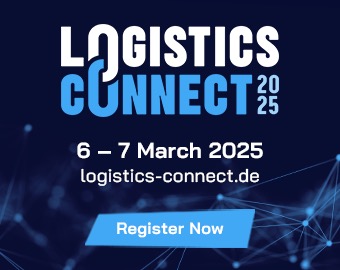In August 2022, the USA passed the Inflation Reduction Act (IRA) – an investment package worth billions of dollars. This was met with mixed feelings in Europe. David McAllister (CDU) and Joachim Schuster (SPD), both Members of the European Parliament, explain what this package means for the EU and how Germany is handling this challenge.
McAllister:
The IRA is a contribution to global efforts to curb climate change. At the same time, however, it’s also intended to stimulate the US economy. As our economies are closely intertwined, some companies in Europe could also benefit from the American government’s stimulus package worth billions of dollars. Nevertheless, there’s no doubt that the IRA also contains discriminatory provisions that undermine a level playing field. This concerns, in particular, tax credits and subsidies where European companies are unable to benefit. There’s a risk here that this will have an overall adverse impact on EU exports and inconvenience some companies more than others. Overall, we in Europe must adapt to the changed circumstances under the IRA and, at the same time, lobby the US government to ensure that exemptions under the IRA also apply to European products.Schuster: The IRA’s protectionist nature should definitely be viewed negatively. The problem is that a number of local content requirements must be met in order to benefit from the tax concessions. This particularly affects EU exporters in key technology sectors like automotive manufacturing, batteries, hydrogen and renewable energies. This is basically the embodiment of the “America first” mentality. And even if the impact of the IRA on the European economy ends up being limited, it’s worrying that the US has taken a number of trade and investment policy measures recently that follow this very ideology, which many in the EU thought had been overcome since the last US elections.
LOGISTICS PILOT: How could this package impact Germany?
McAllister: Much of the debate surrounding the IRA in Germany centres on the rules for subsidising electric cars. The German automotive industry is rightly very concerned that European companies could be penalised. It now depends on how the EU tackles the challenges posed by the IRA on our economy. The recent trilogue agreement on the Net-Zero Industry Act, which offers enormous opportunities for German and European companies, not least in terms of energy technology, was an important step. Increased investment in the production of European batteries, solar cells and chips will strengthen our competitiveness, reduce our dependence on China and contribute to our climate goals in the long term.
Schuster: Of course, Germany will be affected by the IRA, probably more so than other EU countries, as exports are of great economic significance to us. But the IRA isn’t all bad news. It must be viewed as the most ambitious climate legislation in the history of the United States and an important reversal of Donald Trump’s climate policy.
LOGISTICS PILOT: What does the IRA mean for global supply chains and the flow of goods?
McAllister: One of the IRA’s policy objectives is to improve the resilience of the electric vehicle battery supply chain by reducing dependencies on China, which currently dominates this specific supply chain. In a way, the IRA is forcing us to restructure our supply chains, which then offers the US the opportunity to increase its competitiveness vis-à-vis China. We should work with the US to mitigate any negative impact on global supply chains. To this end, the European Commission has already set up a joint task force with our American partners. It’s important that these negotiations now lead to a balanced outcome that’s compatible with WTO rules.
Schuster: The medium and long-term consequences of the US going it alone, which distorts trade and competition, are still not clear as regards the effect on global trade and the international division of labour. However, this law is also part of a global development that’s leading to an increased regionalisation of global added value. The era of neoliberal globalisation appears to be over. The decisive factor will be whether this development is reflected in extensive trade wars to the detriment of all or in the emergence of a new, politically mediated regime for the global economy.

“In a way, the IRA is forcing us to restructure our supply chains.”
David McAllister (CDU) is a Member of the EPP Group in the European Parliament, where he has chaired the Committee on Foreign Affairs since 2017. He was Minister-President of Lower Saxony from 2010 to 2013.
McAllister:
Europe must adapt to these changed circumstances. We must expand our own industry and manufacturing capacities in green and digital technologies, improve our ability to innovate and retain pioneering companies, strengthen our technological sovereignty – not forgetting our ability to set global standards. What is more, ongoing dialogue with Washington remains crucial. We need to ensure that European companies have fair market access to as many of the industries targeted by the IRA as possible.Schuster: The EU has already taken action with the Net-Zero Industry Act and the Critical Raw Materials Act to respond to similar challenges and strengthen its own industrial base. Europe had also already made steps to strengthen its own industries before the IRA came into force, for example to promote the green transition. Nevertheless, we’ll also have to clarify what fundamental strategic conclusions need to be drawn, especially as this is the course a “pro-European” Biden administration has charted. This isn’t just about European resilience, it’s also about the wider question of how we want to position ourselves fundamentally in international relations and in the field of tension between the major powers. (bre)

“The era of neoliberal globalisationappears tobe over.”
Joachim Schuster has been a Member of the European Parliament for Bremen and Bremerhaven since 2014. He is the economic and financial policy spokesperson for the SPD group and a member of the committees for economic affairs, trade and defence.






